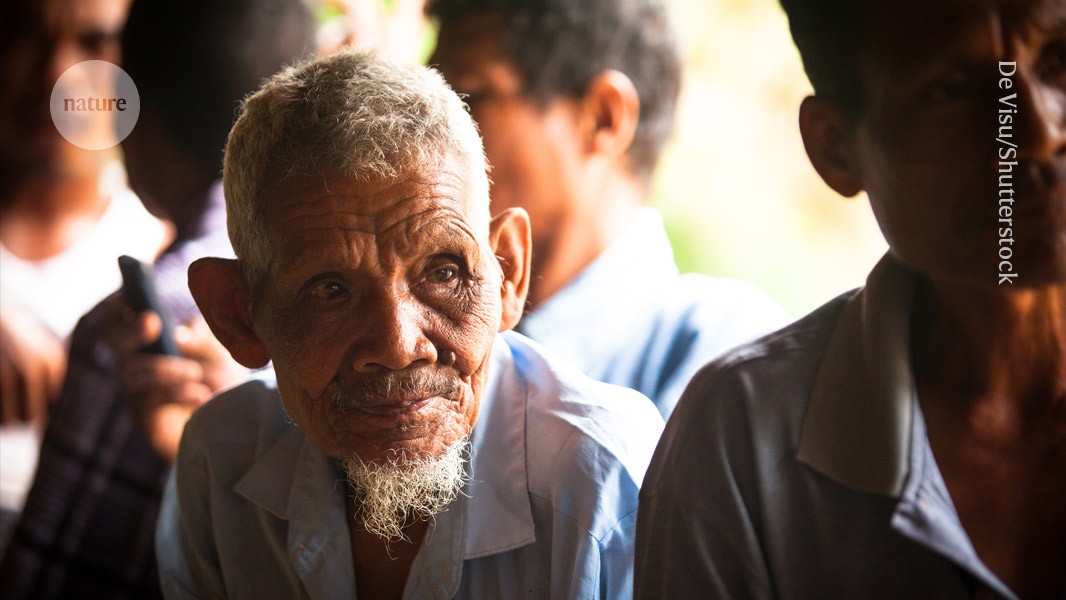Ageing is linked to inflammation — but only in the industrialized world

Inflammation, thought to be a driver of age-related disease, does not worsen with age in some Indigenous communities

Men from Malaysia's Orang Asli population, one of the Indigenous groups that participated in the study.Credit: De Visu/Shutterstock
People from Indigenous communities do not show the same link between chronic inflammation and age-related illness seen in industrialised societies, a study that looked at nearly 3,000 adults in four countries has found.
Inflammation is an important part of the immune system’s response to infection — but long-term inflammation can cause damage. The latest findings, published in Nature Aging on 30 June1, show that chronic inflammation — which has been long considered a hallmark of aging — could be a feature of industrialized living.
Researchers analyzed eight inflammation-linked proteins in blood samples from people living in Italy and Singapore, along with those from Indigenous participants from Bolivia and Malaysia. They found that inflammation levels increased with age and were linked with illnesses such as chronic kidney disease in the Italian and Singaporean groups. But in the two Indigenous groups, inflammation did not increase with age or lead to health conditions.
This suggests that “our assumption that inflammation is an inexorable, inevitable part of ageing is not true”, says Thomas McDade, a biological anthropologist at Northwestern University in Evanston, Illinois. “We shouldn’t assume that the links between inflammation and ageing are universal.”
“We're at a point where we're rethinking the whole nature of inflammation,” says study co-author Alan Cohen, who researches ageing at Columbia University in New York City. “The things that we think of as universal based on a lot of studies in Western industrialised populations are probably just particular to our environment.”
Challenging assumptions
Much of what researchers know about the biological processes that underlie aging is based on research in wealthy countries, which suggests that inflammation increases with age and can contribute to health conditions such as Alzheimer’s disease, diabetes and heart problems. But these conditions are rare in Indigenous populations.
To explore how inflammation might affect aging in different environments, Cohen and his colleagues analyzed blood samples from 1,041 participants in Italy, 941 from Singapore, 536 Tsimane people from the Bolivian Amazon and 358 Orang Asli individuals from Peninsular Malaysia. More than 50% of the people in each group were female.
The researchers measured how eight types of proteins called cytokines — molecules released by immune cells that are involved in inflammation — changed with age in each group, and whether their levels were associated with age-related health problems.
Login or create a free account to read this content
Gain free access to this article, as well as selected content from this journal and more on nature.com
or
Sign in or create an accountdoi: https://doi.org/10.1038/d41586-025-02085-w
This story originally appeared on: Nature - Author:Miryam Naddaf

















